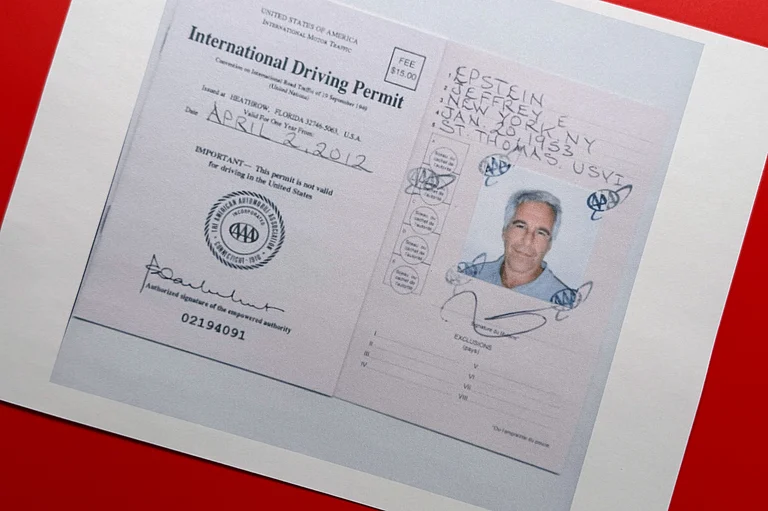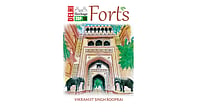Post-colonialism, post-modernism and many other isms too numerous to relate flit through this flibbertigibbet of a book on Ariel’s wings—not, mind you, Shakespeare’s Ariel, but Sylvia Plath’s. The only thing lacking perhaps are those legendary angels dancing on the tip of a needle, though all kinds of angels and winged things reverberate. Rukmini Bhaya Nair’s first novel is a pot pourri of a literary event—she calls it a triptych—that manages a unique balancing act between Sylvia Plath, William Blake and D.H. Lawrence, fondly called David.
Linking the three parts is the persona of Pari, Parineeta, brought up in a convent and Bengali by birth. A girl whose mother hanged herself wearing a fur hat, the mad girl from the Sylvia Plath villanelle which gives the book its name—and the title, incidentally, has been used for a Plath biography.
Girls from Calcutta will find an immediate connect to Pari’s convent days at Tempke—though yes, you do have to be a hostelite to get the in-depth awfulness and snippets like the vanishing turkey, Afie’s appearance on the scene, not to mention forbidden romance rewarded by Mills & Boons in the library. Bhaya Nair takes a familiar world and walks it through the unfamiliar. What she does isn’t exactly magical realism, because Pari is well aware of who she is and that she is narrating something that is surreal. In a sense, she reminds me of John Fowles’s Mantissa, a muse who shape-shifts and inspiration-shifts, the whole told in an imaginary conversation.
Pari is a poet and it is poetry that is one of the main threads in the novel—not surprisingly, because Bhaya Nair herself is a poet. D.H. Lawrence, in fact, is celebrated in this novel for his poetry and not the novels, though there is a fleeting glimpse at Lady Chatterley. Certain things are taken for granted, like knowledge of the works and the lives involved—easy enough for a literature student from Presidency. Sylvia Plath, Ted Hughes, William Blake, Catherine, David and Frieda, they toss and jostle while Pari flits bat- or turkey-winged through her Prozac cocktails and medical reports. Aviomania is her medical disorder of choice.
Pari’s madness is given depth—Bhaya Nair gave the medical reports more prominence and linked her through suicide with Sylvia Plath. The question is, is the madness really relevant or is just an interesting gimmick to float a muse? In the Blake portion, Pari is busy egging Blake to greater heights of poesy and admiring traces of early impressionism in his work, not to mention commenting on his erotic paintings which involve winged beings. Blake, however, reads like a digression and in her end note Bhaya Nair confirms this by saying that the reader has the liberty to skip that section.
The question is—and the book arouses many questions—is this a tale of madness and suicide or is it a story of an obsession with poetry and post-colonial hangover that makes most Indians cling to the English language, speaking it on occasion better than the Brits themselves? Pari’s asylum in England in fact comments on the clarity of her English and the lucidity of her literary thoughts. And once freed of her delusions, she becomes a teacher of English literature, hat and all. Traces of Bhaya Nair’s life seem to creep in perhaps and her own literary passions—her love for D.H. Lawrence got her on to a board, she confesses.
Parineeta’s mother’s death is pure Rituparno Ghosh, a beautiful woman in a Benarasi sari hanging from the ceiling, or would be if it weren’t for the hat. The fact that Pari insists on using terms like ‘doctorji’ and ‘Amitabhji’, which aren’t exactly Bengali, does strike an odd note. Otherwise, Bhaya Nair has enough references to fill a fairly hefty section of footnotes—which, of course, goes with the academic background.
In a sense, this is an insider’s world, a world of private jokes and a sharing of intellectual knowledge with digs here and there. A world where you can rub shoulders with D.H. Lawrence, using a name that no one except his mother did. Or where you can talk about Sylvia Plath dying on the coldest night in England for 29 years and write playfully in the eighteenth century manner, if required, to strut side by side with Blake. The style is fresh, vivid and playful—Coetzee’s comment on the cover is apt—and effort must have gone into keeping the verbal somersaults interesting.


























